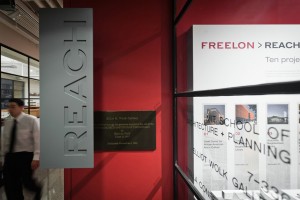Every Building Has a Story
-
-
slice.mit.edu
Filed Under
Recommended
In “REACH: Architecture of The Freelon Group,” Freelon's team showcases the processes that lead to the creation of various public sector projects including museums, airports, and university buildings. The exhibit seeks to peel back layers of past projects and give a glimpse of how building creation evolves over time.
The ten projects featured include prominent works such as the National Center for Civil and Human Rights and unique buildings like Atlanta’s Puppetry Museum. Each work is introduced in an infant stage that establishes the building's seminal idea, and its evolution is traced through drawings, models, and photographs up to completion.
Philip Freelon told TechTV:[youtube http://www.youtube.com/watch?v=24PcG0RlNyo&w=507&h=258]“The word ‘reach’ signifies that our projects are reaching out into the community. These projects were commissioned by local governments, state governments, and public sector schools. This is important because every day people–tax payers–can see our work.
The projects you see here bringing a new class of users to the table who are meaningful participants in the process. This exhibit isn’t simply recording what we’ve done, it’s a full glimpse of the thought process leading up to these finished buildings.”
A professor of practice in the School of Architecture + Planning, Freelon is a co-designer of the Smithsonian’s National Museum of African American History and Culture, and received the 2009 AIA Thomas Jefferson Award for Public Architecture. In December 2011, he was appointed by President Barack Obama to the seven-member U.S. Commission of Fine Arts.
He founded the Freelon Group in 1990. Based in Durham, N.C., the 55-person design team's projects include the Reginald F. Lewis Museum in Baltimore and the Museum of the African Diaspora in San Francisco.
Originally scheduled to conclude April 13, the exhibition now runs through June 8. The Wolk Gallery is free and open to the public, Monday through Friday, 9 a.m. to 5 p.m.



